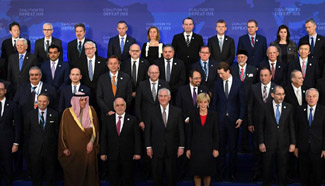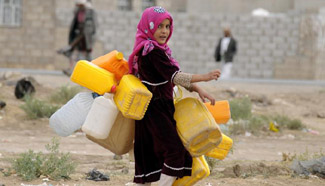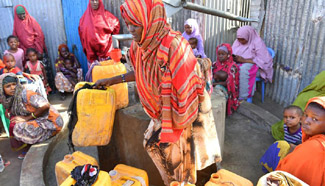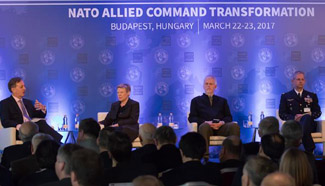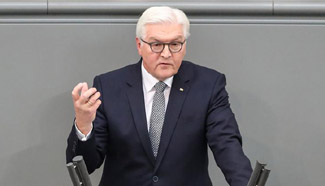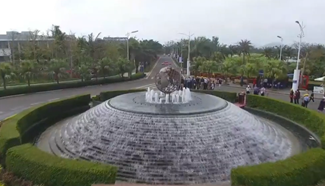by Fu Yiming
STOCKHOLM, March 22 (Xinhua) -- The world needs effective and inclusive water governance amid a growing demand, said Hakan Tropp, director of water governance at the Stockholm International Water Institute (SIWI), on Wednesday.
The amount of water available is unchanging, yet demand for it is growing every day, especially from the manufacturing, energy and food producing sectors, he told Xinhua during a ceremony held here for announcing the 2017 Stockholm Water Prize winner.
"We see an increasing number of cities and factories reaching further into the rural landscape to claim water resources, increasing the potential for water to be a source of tough trade-offs and social and political tensions," he noted.
Tropp called for an effective and inclusive governance of water resources worldwide.
"The world needs effective, and more inclusive water governance. We need to make better decisions today to manage the water demands of tomorrow," he said.
"We also need to make sure that the water available is used for the greater public good and is recognized as a critical component to eradicating poverty," the water expert added.
According to SIWI, nearly 40 percent of the world's population lives in countries that share river basins. Increasing stress on water resources globally demands reasonable and equitable use of transboundary waters.
SIWI also believes that improved management of transboundary waters reduces the potential for conflict, fosters socio-economic development, promotes shared benefits, and supports healthy ecosystems and services.
Tropp pointed out that water resources are currently over-exploited and polluted in many places, and millions of people around the world lack access to safe water and basic sanitation.
"I hope to see clear political direction that empowers decision-makers to make better choices for both people and the environment," he said.
"For example, improved water governance reduces investment risks. A more stable and reliable investment environment leads to more investments into water. By ensuring that infrastructure procurement processes are transparent, contract costs can be kept much lower while maintaining a higher quality of infrastructure services delivery," the expert added.
Tropp criticized the current decision making on water issues for being "often fragmented between government institutions and agencies," urging better cooperation between them and a unified water mandate.
"The unpredictability of climate change impacts can reduce the effectiveness of legislation as a tool for water governance. This is why negotiated outcomes -- inclusive processes that bring impacted stakeholders to the decision making table -- are critical to the future of effective water governance," Tropp noted.
While noticing a great trend in many parts of Africa towards improved water governance through more inclusive decision making, Tropp believes "much remains to be done."
On Wednesday, which marked this year's World Water Day, SIWI granted Professor Stephen McCaffrey of the United States the 2017 Stockholm Water Prize for his "unparalleled contribution to the evolution and progressive realization of international water law."


